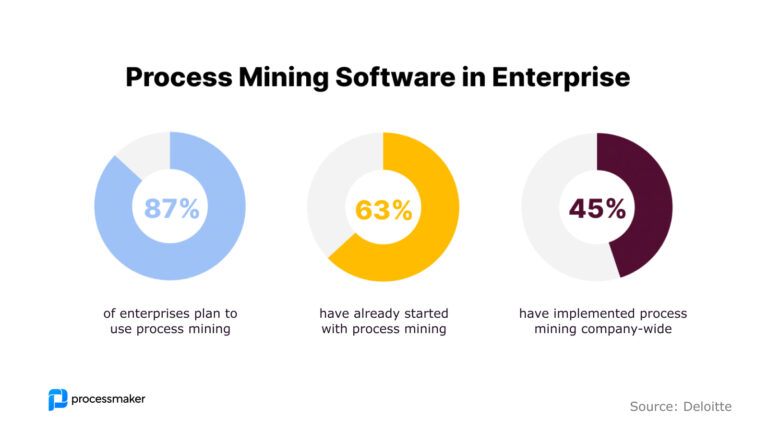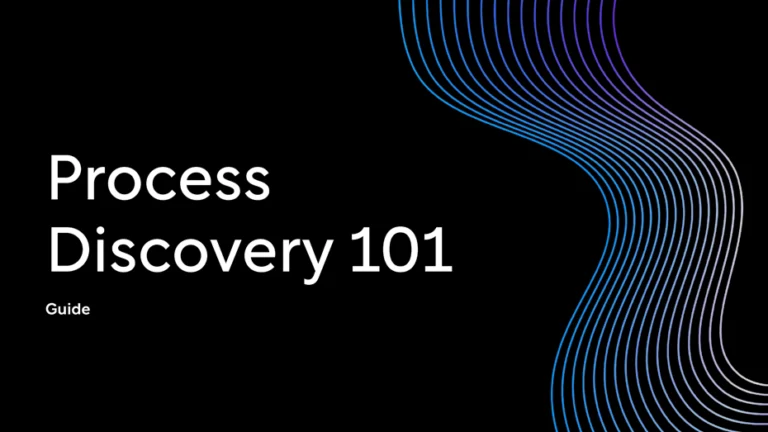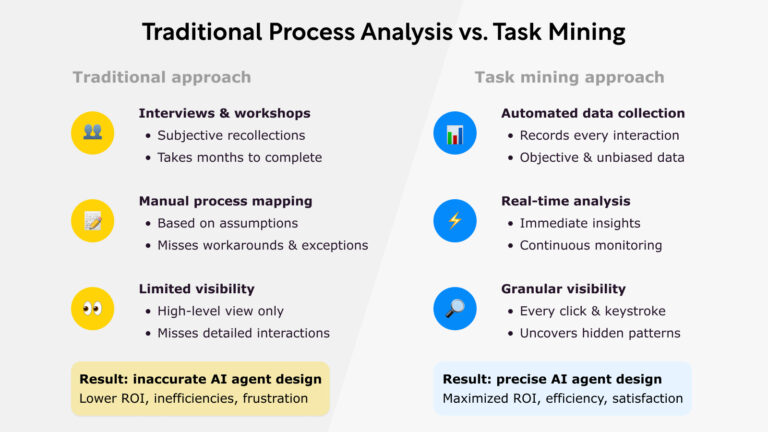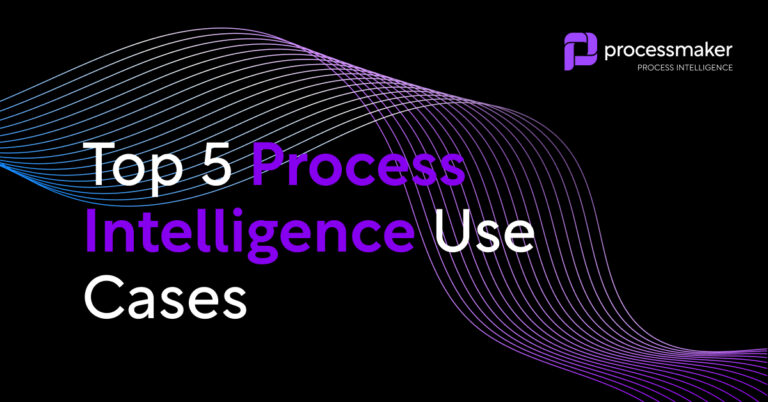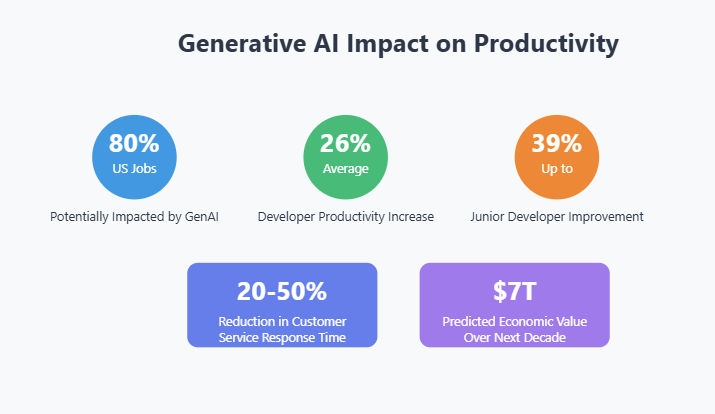According to recent research by Deloitte, the popularity of process mining is on the rise. A whopping 63% of global companies have started using it, while most plan to pilot process mining soon.
However introducing new software into your organization involves convincing many departments and stakeholders that process mining is well worth the time, money, and effort. What’s more, process mining is a purchase where enterprise software and IT sourcing best practices apply.
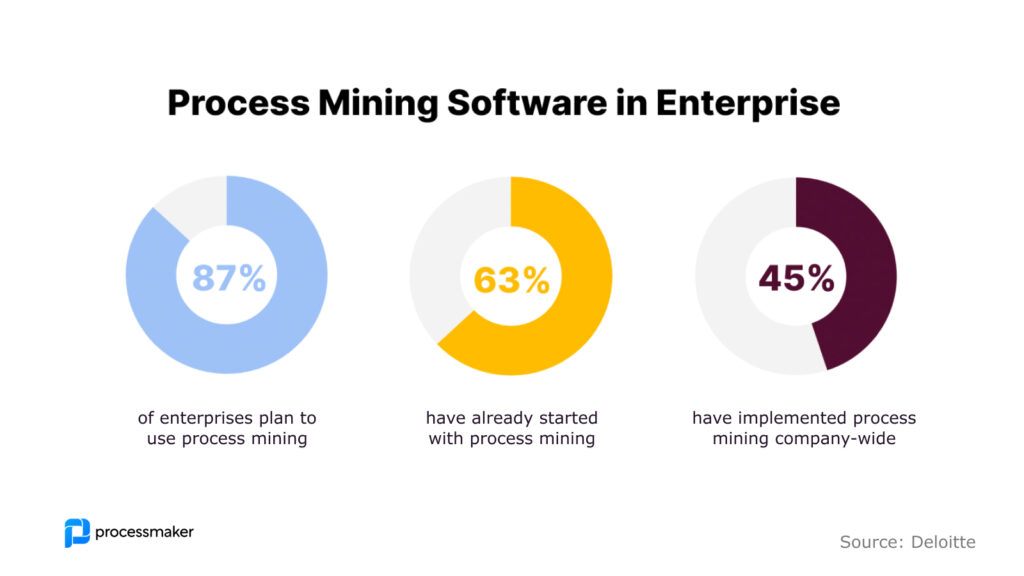
The growth of process mining, according to Deloitte
What makes a good business case for enterprise software?
First and foremost, an excellent business case should:
- Weigh cost to benefit ratio of building vs. buying software
- Consider risk and information security
- Begin with a highly detailed and persuasive executive summary
- Be jargon-free and quickly explain to investors and stakeholders
- Build company-wide confidence that the software will bring value
- Set a clear end goal and objectives
- Explain the purpose of implementing the software
How to build a business case for process mining
- Start with clear goals. Identify the problem that process mining could solve.
- Quantify expected benefits. Estimate the potential cost savings or process improvements that process mining could bring.
- Calculate the total cost of ownership (TCO). Evaluate the cost of implementing process mining, including software, implementation, consulting and personnel costs.
- Define expected return on investment (ROI). Compare the expected benefits to the estimated costs to determine the return on investment.
- Develop a realistic timeline and plan. Develop a plan for implementing process mining, including the timeline and budget.
- Get buy-in from key stakeholders. Present the business case to stakeholders and secure their approval.
Best practices for making an effective case
Don’t do it alone
Writing an excellent business case requires input from specialists across various departments. For example, the finance team can create a financial evaluation to cut risk, check costs and budgets and convince investors how process mining software can save money. HR can explain the scope of the project and answer how it’ll change daily operations, who it’ll impact, and who will be involved.
Get ready to answer some tough questions
When presenting your business case, decision-makers and other employees will inevitably ask you many questions. You’ll have to explain the project’s purpose, who will work on it, and how the project will help reach business goals and objectives. Also, remember to estimate project completion time and the metrics you’ll use to measure success. Although you’ll get this information from specialist departments, you must be able to understand it thoroughly and explain it in simple terms.
Make a realistic case
A good business case doesn’t focus only on the good stuff. It must highlight any risks and address stakeholder concerns with convincing answers and awesome solutions. Producing a detailed yet straight-to-the-point case backed by expert opinions, evaluations, and predictions is the key to success.
Defining your case for process mining
Once you know what issues you want to solve with your case, you must define it. This step isn’t about choosing one use case. It’s about getting a sense of its scope. You might even find yourself with primary and secondary use cases. For example, it’s not uncommon for someone to select process discovery as their main case and process optimization as a secondary case. A few of the most common use cases are:
Process mining helps identify if processes comply with ever-changing legal rules. If a process doesn’t adhere to the law, your company can face fines and a full-blown PR crisis which could result in your business closing down.
Process discovery
Process discovery enables businesses to redesign pointless and old-fashioned processes. This is very useful for those with unknown or sidetracked process flows on their hands.
Resource optimization
Process mining sheds light on the distribution of resources per task. Viewing output quality and cycle time helps decision-makers achieve operational excellence.
Cycle time operation
Cycle time optimization is all about making the best use of time. Finding and dealing with bottlenecks helps companies speed up wait times and production without damaging the quality of their service or product.
To illustrate the benefits of process mining, let’s look at its role in enhancing the purchase-to-pay process. P2P involves many procedures, requests, suppliers, etc. More steps and people involved means more chances of errors.
- Implementing process mining offers more visibility into end-to-end processes to help discover the root cause of process issues.
- Helps unlock new opportunities thanks to automated processes.
- Identifies undesired behavior, ignored processes, and processes causing bottlenecks.
- It helps teams make plans with visual data.
As a result, businesses identify development areas, see the amount of time it takes for requests to become orders, and even how the time needed for processing. What’s more, time-consuming and often tedious tasks such as invoice approval can be fully automated.
The bottom line
Process mining benefits large and small companies and the people you pitch to will likely know this already. However, an investor’s decision to adopt a new system largely depends on how well you can convince them of your goals, ensure you can deal with issues, and offer teams a more straightforward and more effective way of working.
